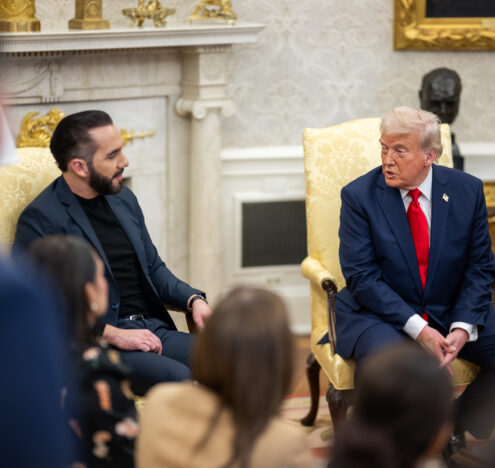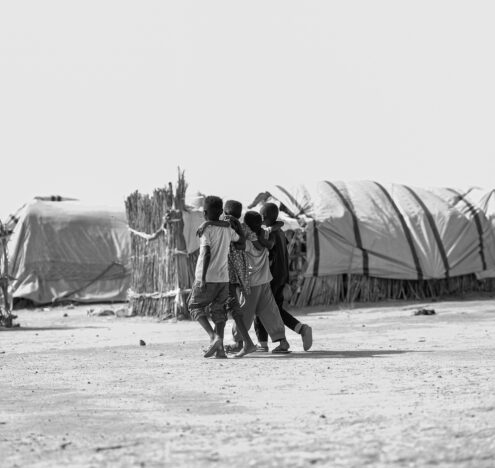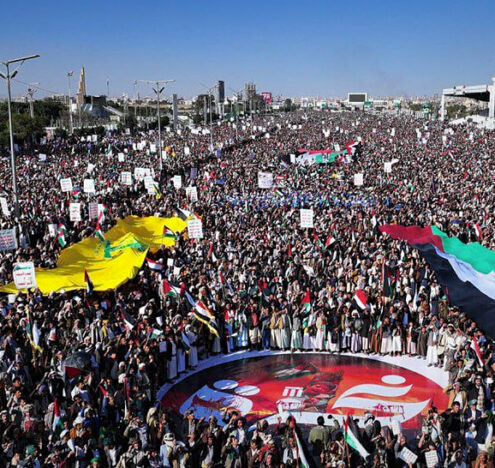Starting on Oct. 29, Tanzania began experiencing what opposition parties and international observers are calling the country’s “Tiananmen Square moment.” President Samia Suluhu Hassan won re-election with an implausible 98% of the vote after her two main challengers were either jailed on treason charges or barred from running. When Tanzanians took to the streets to protest, in cities including Dar es Salaam, Mwanza, and Arusha, security forces responded with tear gas and live ammunition. Media reports claim hundreds of deaths nationwide, but the real number may be much higher as reports remain in part unverifiable due to a government-imposed internet blackout (now ended) and restrictions on journalists.
As shocking as this violence is, these events did not come out of nowhere — signs were visible to anyone willing to look beyond the symbolism of Hassan’s gender, and the soft-spoken persona that Western media repeatedly emphasized. She seemed like a foil to her louder predecessor, John Magufuli, a strongman known for his powerful (and often blunt) speeches. Magufuli had pulled the country towards authoritarianism, curtailing the rights of the press and limiting the rights of civil society. Observers and diplomats from the US lauded East Africa’s first female president as a sign of progress, but in doing so overlooked the most obvious truth: To secure the vice presidency under Magufuli’s authoritarian regime, Hassan had to be a willing participant in the repressive governance that defined his rule. This fundamental misreading of her political trajectory has contributed to one of East Africa‘s most severe democratic crackdowns in recent memory.
Hassan came to the national stage as the Minister of State for Union Affairs, overseeing the relationship between Tanzania’s semi-autonomous island archipelago of Zanzibar and the mainland. Her Zanzibari background was another symbol that many underscored as significant, a sign that she would be friendly to opposition and minority rights. Hassan’s record as Minister of State for Union Affairs, and the accusations surrounding the 2015 election that led to her rise to the role of vice president, said otherwise. During the 2015 Tanzanian elections (and even before), Zanzibari activists and politicians were vocal about the violence that occurred under her watch, including the rise of the so-called “zombies” (groups of youth that allegedly mobilized to intimidate voters) and credible accusations of election-related deaths. Yet in Western diplomatic and media circles, Hassan’s Zanzibari background was frequently described in positive terms: evidence of her potential to bridge divides, or as a sign of CCM’s commitment to change and moderation..
International media coverage of Hassan often focused on her demeanor, something we see less often in coverage of male leaders. Many called her “soft-spoken,” a revealing analysis that relied heavily on her gender, and which allowed for the focus to be on her representational, and not substantive, positionality. This is a particularly insidious form of sexism, masquerading as progressive analysis while denying women individual political agency. Hassan’s identity as a Muslim woman added another layer to Western misperceptions. It’s possible that observers’ unconscious bias was influenced by assumptions about Muslim women’s passivity that permeate Western media fueled by orientalism. This led to a narrative by some that Hassan was a figurehead, a symbolic choice by CCM while supposedly “real” power remained with mainland, male elites who would hold a steady course, leaving Magufuli as a blip in a more moderate record. Regardless of the actions of other party members, many of whom may also have pushed for a hard line on dissent, many observers allowed sexism to blind them to Hassan’s active role in ushering in this crackdown.
Just as concerning as how the international community missed the signs of this crackdown is the fact that the international community is not hearing more about it from the US foreign policy apparatus — a stark sign that we are entering an era of severely reduced capacity and US leadership on human rights and democracy around the world. As of Nov. 6, 2025, eight days after Tanzania’s election, the US Embassy in Tanzania has issued only a security alert. There has been no substantive statement from condemning the election violence, nor has there been any focus on democratic values. In 2020, ahead of Tanzania’s previous election, the US Embassy issued a clear statement affirming that “the conduct of the upcoming elections in Tanzania has important consequences not only for Tanzania, but for the entire East African region.” The statement warned that the United States would “not hesitate to consider consequences for those found to be responsible for election-related violence or undermining the democratic process.”
Five years later the US response has been virtually nonexistent. The US Embassy website shows an increase in US-Tanzanian security cooperation under the current administration, with several exercises aimed at strengthening “growing security cooperation” between the nations. Meanwhile, there has been no engagement during this egregious misuse of military force against civilians. A government that the US engages with on security issues is shooting civilian protestors and engaging in extreme election violence. We’re witnessing the withering of the US’s commitment to human rights and democracy abroad. The Leahy Laws forbid the US from providing security assistance to governments that have committed gross violations of human rights — a continuation of the current security cooperation, without consideration for the events of the last week, would bring those laws into question. The implications extend far beyond Tanzania: If the United States won’t speak up when a security partner massacres protesters in broad daylight, what message does that send to other authoritarian-leaning governments across the continent?
Tanzania’s drift into authoritarianism also has lessons for the US at home. The relationship between John Magufuli and Donald Trump offers a case study in mutual admiration — even if that admiration was partly manufactured. In March 2017, Tanzania’s state broadcaster TBC even ran a story claiming Trump had praised Magufuli as an ”African hero.” The fabricated story wasn’t random. Some would say that Magufuli shared Trump’s rhetorical style, his disdain for media criticism, and his ability to castigate the press while claiming to fight for transparency. Hassan, following Magufuli’s template, has crafted a regime that deploys accusations of corruption, tax evasion, and even terrorism against opposition figures; tried and true tactics deployed the world over by those seeking to consolidate power. This is a chillingly familiar playbook, as we witness growing concerns about the potential weaponization of the IRS against civil society organizations, a chilling of the legal space, increasing narratives around the internal other and domestic terrorism, and narratives of conspiracy.
The failure to see Samia Suluhu Hassan clearly has contributed to one of the worst episodes of election violence in Tanzania’s history, perhaps one of the worst on the continent in recent times. Blind spots shaped by sexism, and an attachment to symbolic rather than substantive change, allowed a brutal crackdown. These blind spots are increasingly evident in the US as well. We should all worry if the US abandons even the language of human rights and democratic accountability in our foreign policy, and most urgently, Tanzanians deserve better than our silence.




















